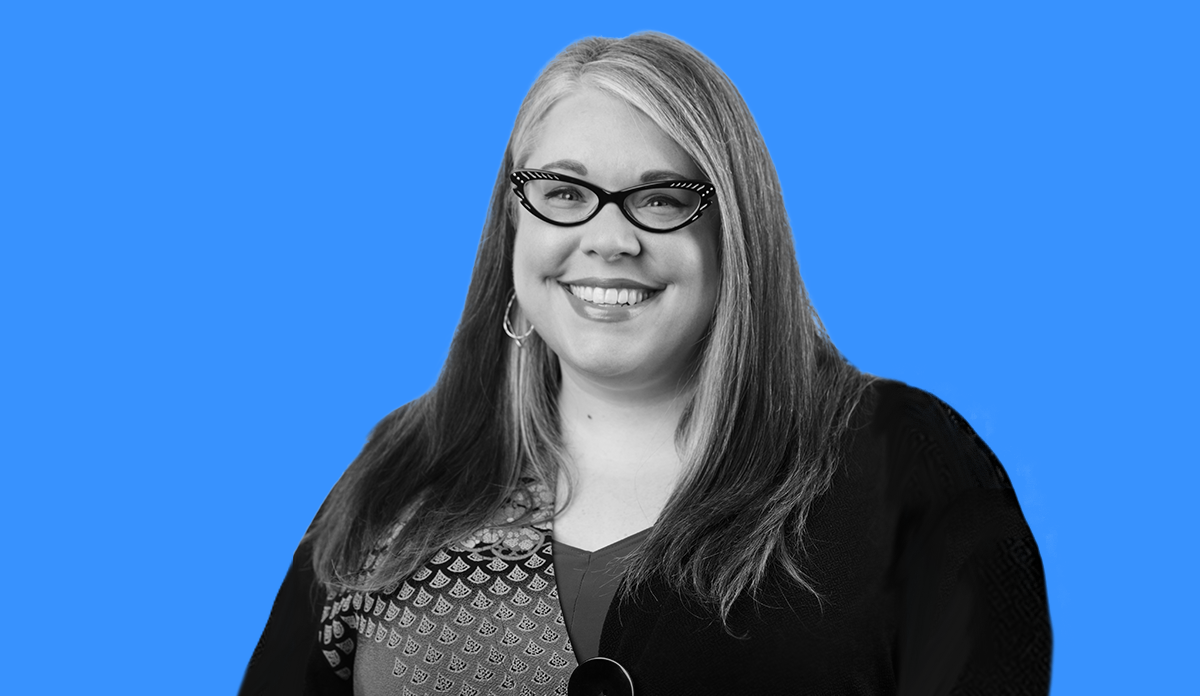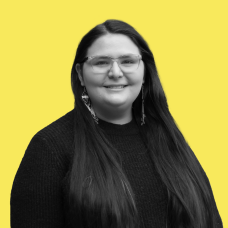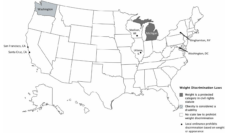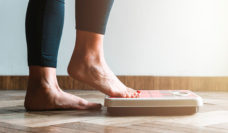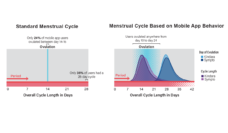Fat is a word marked by negative messaging and used as a euphemism for ugly or lazy. The demonization of “fat” is happening not only to the word but to the people that this word may be applied to. Anti-fat discrimination is rampant in U.S. culture, and tied to other forms of oppression, including racism, classism, and misogyny. The stigma surrounding weight results in social and structural exclusion from places like gyms, bars, and restaurants, as well as areas not built for larger bodies, such as classroom desks and airline seats.
Weight stigma and discrimination result in mistreatment and inaccurate assumptions that a person with a fat body has this frame as a direct result of unhealthy choices. At the same time, thinness is often a visual cue for health, with an intrinsic value assumed to be superior to “unhealthy” or fat. The ever-present negative messages about fat bodies can lead some to engage in disordered eating and weight cycling, regardless of how much someone weighs or what their body looks like.
To combat dangerous anti-fatness, fat activists like Rev. Dr. Anastasia Kidd have been working to further the movement of fat activism and body liberation. In her recent book, Fat Church: Claiming a Gospel of Fat Liberation, Kidd explores the ways White American Christians have historically participated in anti-fat bias and healthism, a form of bigotry rooted in the idea that healthy bodies are superior to unhealthy bodies. She also introduces the concept of fat liberation, the deliberate work of tearing down systems of oppression that have enabled weight discrimination, fat stigma, and fatphobia in most aspects of life, including employment, health care, and education.
“Society has long viewed thin bodies as healthy and therefore superior to fat bodies. Why do we look at fat people and automatically think they are failed thin people?” asks Kidd. “We need to stop thinking fatness is a problem to be fixed and instead work towards a cultural shift in which fat people will be free from personal shame and all bodies will have physical access to society without discrimination.”
Rev. Dr. Kidd sat down with Public Health Post to discuss the themes covered in her book, including the use of the word “obese”* as a medicalized slur and the health effects of weight stigma in research.
*Please note, the word “obese” is considered a slur within the fat activism movement, used to make fat people into a disease. Within this article, ob*se will be written with an asterisk per Rev. Dr. Kidd’s writings.
Public Health Post: What are the overarching themes of your book?
Anastasia Kidd: My book is called Fat Church because of my social location as a minister in the Protestant Christian Tradition. Much work has already been written about fat liberation, fat activism, and health. So, my book is meant as an introduction to these topics for people in my own community, but it can also be a primer for any reader whether or not they are religious.
The book covers three main topic areas. The first shares my own experiences growing up in diet culture. Like any identity group, there are experiences you only understand when you are inhabiting that identity. Fat narratives are so often told for us, and it’s important to have perspectives that can portray the complexity of that experience. I also cover major questions of health and explain the history of diet culture and fat discrimination, as well as how it is related to other forms of oppression, such as misogyny and racism.
The last part of the book covers some theology and how the church is deeply connected to the history of anti-fatness as it is connected to White supremacy and homophobia. The church has been complicit in the furthering of the narrative that to be fat is to be gluttonous and sinful, as opposed to just being in the neutral body that God created.
Your book discusses the concepts of ob*sity research and fat-neutral medical research. What are the differences between these forms of research and the harms or positives of both?
Ob*sity research to date has been geared toward ending fatness by any means possible. Not only by encouraging restrictive diets and weight cycling, which rarely works. The medical and diet industries need “ob*sity” to be a disease so they can keep selling the products to “cure” fatness. Fatness is not a disease. It is a body type, and the main thing that fat activists push against is the eradication of our bodies. Fatness has existed throughout history in all different cultures–sometimes revered, sometimes reviled—but it’s always been there.
Fat-neutral studies are interested in the fat body thriving. Instead of trying to make a fat person thinner, let’s stop talking about weight loss altogether and instead talk about adding positive health behaviors, regardless of a person’s size. Studies have shown that you can drink more water, be more active, and eat a more balanced nutritional span of foods, but your body shape might still not change considerably.
The more weight-neutral the whole medical care experience can be—not weighing somebody at the start of an appointment or having all chairs accommodate all sizes—the more we can do to create practices of inclusion for fat bodies in medicalized spaces. We must move past the healthist idea that weight loss is always the answer.
What do you want your readers to take away from your book?
I think back to my ten years of doing this research privately. I wrote probably 80 pages of this book on the Notes app on my phone, but I didn’t share it at first because of the shame I had about being fat, and I was scared that no one would listen or care.
Being able to write this was like a gift to myself 20 years ago. I want people to understand that you can’t care about systemic oppression without caring about fat identity and the discrimination towards fat people that is only complexified and compounded by all other intersectional oppressions.
But I also wanted this to make people feel less alone. There are very few resources that tell us that it can be a joyful experience to live in fat bodies. We have to get loud. Fat people and people who care about fat people have to start showing up and start dismantling our own oppression from the inside out.
Photo provided









